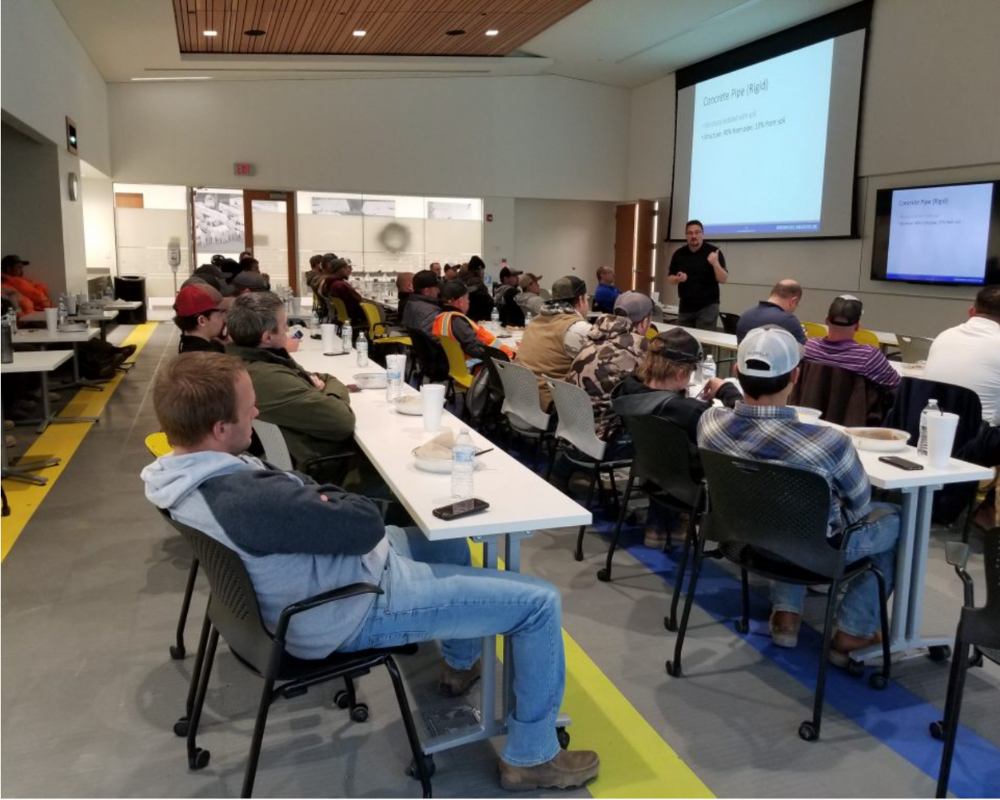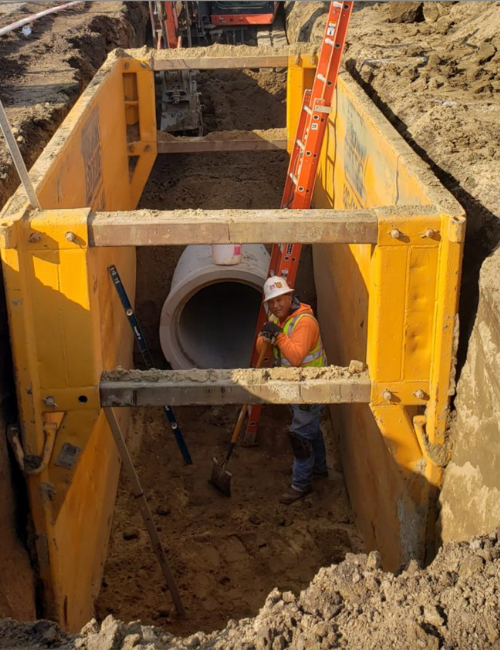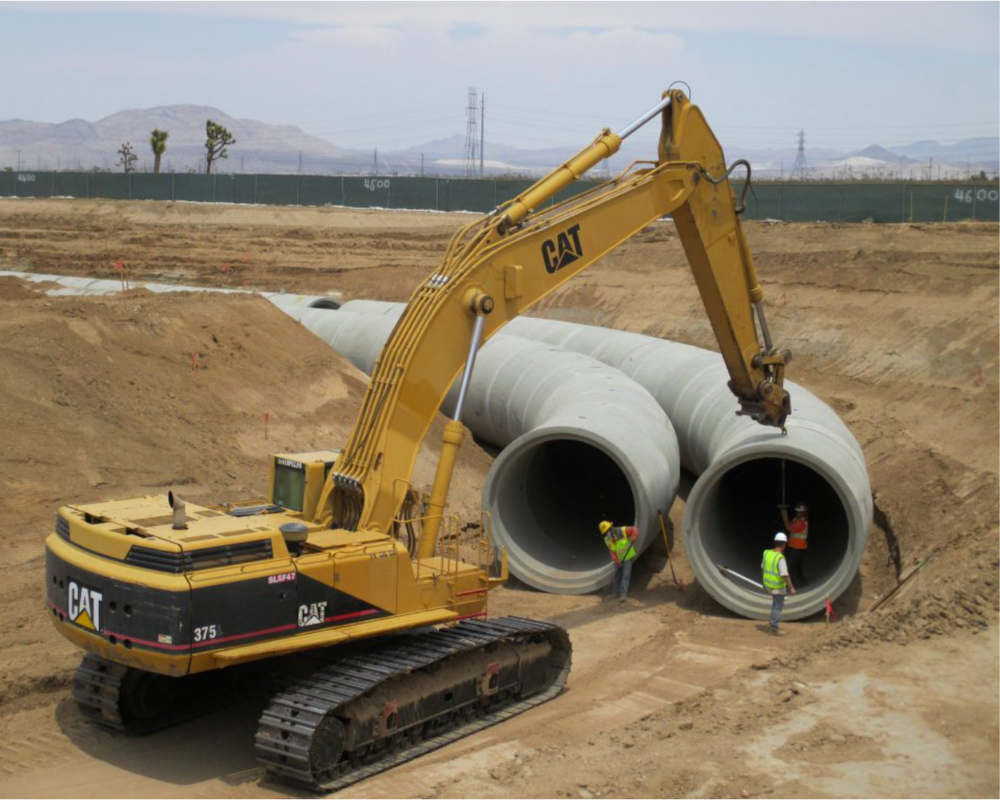ACPA Pipe Installation Training: The Best Pipe is a Properly Installed Pipe
January 30, 2020
Proper installation of storm drain pipelines is a concern facing city engineers and inspectors across the United States. Whether pipes are rigid or flexible, a faulty installation can cost contractors as well as taxpayers time and expense. That’s why the American Concrete Pipe Association is partnering with cities, offering free pipe installation seminars for contractors and inspectors.

During the coming “off-season” construction months, various ACPA chapters and members will offer seminars, focusing on the fundamentals of pipe installation. Rigid and flexible pipelines are uniquely different products and should be designed, installed and inspected differently. In our training sessions, project managers, estimators and pipe crews learn:
- how installation affects pipe structure;
- backfill placement and compaction;
- proper lubrication and assembly of pipe joints/gaskets;
- testing procedures for rigid and flexible pipe;
- pipeline video inspection; and,
- the high costs of repair or replacement due to construction damage.
ACPA began offering pipe installation training when we realized a need for more education about the topic in our industry. Oftentimes, a misperception abounds that all pipes are the same. But concrete and flexible pipes are different and should be designed, installed and inspected differently. However, contractors and estimators don’t have any source of training about these differences in many cases.
Through our seminars, contractors and inspectors an opportunity to learn about pipe specifications and the manufacturers’ recommendations. In a relaxed atmosphere, we’re able to cover the misconceptions, and contractors have an opportunity to share their best practices, too.
Some topics covered include:
- proper pipe storage and handling;
- trench width requirements;
- joint configuration and assembly;
- bedding placement; and
- cover and backfill requirements.
As always, communication is critical to a successful outcome. Regarding communication during installation and post-installation:
- Don’t assume the outcome.
- Communicate clearly.
- If something doesn’t look right, communicate BEFORE it’s too late.
A contractor who recently attended one of our seminars commented that contractors want to perform a proper installation, and the more emphasis is placed on post-installation, the more they want to do it right.
ACPA pipe installation trainings help both cities and contractors save time and money. With better pipe installations, taxpayers benefit from not paying twice for pipelines (once for initial construction and again for maintenance/rehabilitation). Contractors benefit from not having to repair or replace pipelines prior to paving. In the long run, it’s always better and more cost-effective to “do it right the first time.”
Concrete pipe has a long service life up to 100 years when it’s handled and installed properly. Let us help you achieve the results you’re counting on. If you have a need for pipe installation training in your area, contact Wanda Cochran.



